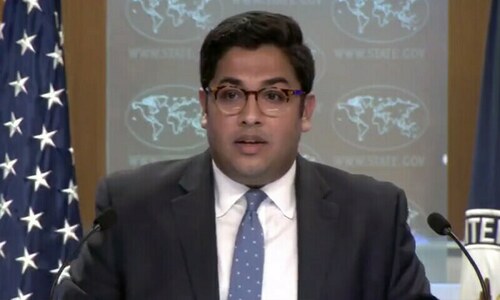The White House is launching a partnership with India that President Joe Biden hopes will help the countries compete against China on military equipment, semiconductors and artificial intelligence (AI).
Washington wants to deploy more Western mobile phone networks in the subcontinent to counter China’s Huawei Technologies Co Ltd, to welcome more Indian computer chip specialists to the United States and to encourage companies from both countries to collaborate on military equipment like artillery systems.
Yet the White House faces an uphill battle on each front, including US restrictions on military technology transfer and visas for immigrant workers, along with India’s longstanding dependence on Moscow for military hardware, issues it hopes to now address.
Biden’s National Security Adviser, Jake Sullivan, and his Indian counterpart, Ajit Doval, are meeting with senior officials from both countries at the White House on Tuesday to launch the US-India Initiative on Critical and Emerging Technologies.
“The larger challenge posed by China — its economic practices, its aggressive military moves, its efforts to dominate the industries of the future and to control the supply chains of the future have had a profound impact on the thinking in Delhi,” Sullivan said.
“This is another big foundational piece of an overall strategy to put the entire democratic world in the Indo-Pacific in a position of strength … it’s a strategic bet by the two leaders … on the idea that creating a deeper ecosystem between the United States and India will serve our strategic, economic and technological interests.”
New Delhi has frustrated Washington by participating in military exercises with Russia and increasing purchases of the country’s crude oil, a key source of funding for Russia’s war in Ukraine. But Washington has held its tongue, nudging the country on Russia while condoning India’s more hawkish stance on China.
On Monday, Sullivan and Doval participated in a Chamber of Commerce event with corporate leaders from Lockheed Martin Corp, Adani Enterprises and Applied Materials Inc.
While India is part of the Biden administration’s signature Asian engagement project Indo-Pacific Economic Framework (IPEF) on supply chains, clean energy and anti-corruption, it has opted against joining the IPEF trade pillar negotiations.
The new initiative also includes a joint effort on space and high-performance quantum computing.
General Electric Co, meanwhile, is asking the US government for permission to produce jet engines with India that would power aircraft operated and produced by India, according to the White House, which says a review is underway.














































